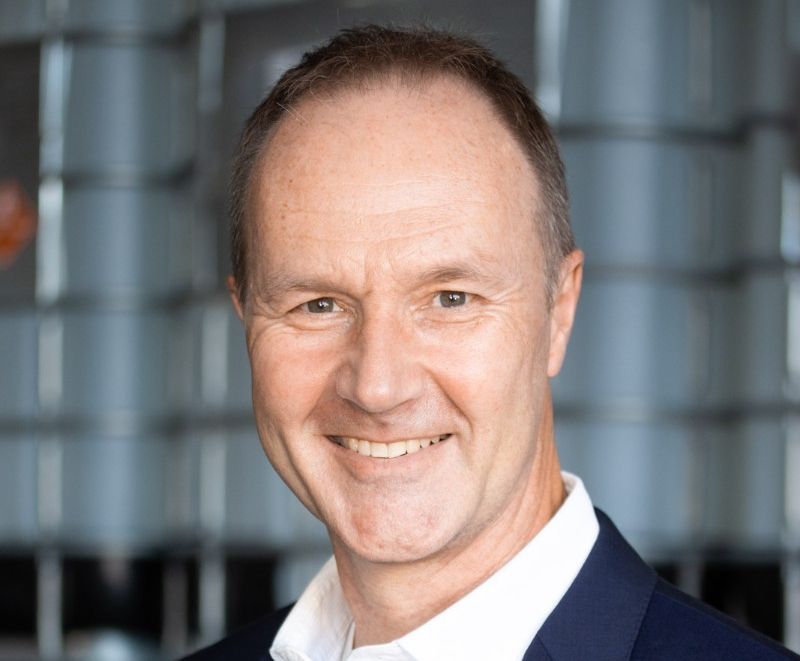Australian startup Cauldron has been awarded AUD4.3 million ($2.8 million) from the Department of Industry, Science and Resources Industry Growth Program (IGP) to help scale a manufacturing platform enabling its partners to produce high-value ingredients via precision fermentation more efficiently in a continuous process.
Other IGP grant recipients include Forager Automation, which is developing a robotic picking device for harvesting delicate fresh produce, and Li– S Energy, which has developed “lighter, cleaner and greener” lithium sulfur batteries claimed to deliver more than twice the energy density of lithium ion.
Cauldron, which operates a 25,000-L demo-scale facility in New South Wales, believes a continuous (rather than a batch) ‘hyper’ fermentation process will be key to unlocking the commercial viability of microbial fermentation for a host of ingredients that have historically been sourced from animals or petrochemicals.
In a traditional batch process, microbes proliferate until they reach critical mass in a fermentation tank and are then triggered to start producing a target molecule via a change in the media. The batch is then completed, the ingredient is extracted, the tank is cleaned, and the whole process starts all over again.
Cauldron, however, has found a way to maintain microbes in a productive state, and then feed them into ancillary vessels where they start expressing the target molecules. It has successfully run a 10,000-liter production system continuously for more than eight months without contamination or ‘genetic drift,’ two key challenges in running long-term fermentation.
As the process doesn’t require large fermenters, it is able to reduce both variable costs and fixed costs and deliver more product per dollar of CapEx, says the firm, which has just appointed biotech industry veteran (Solugen, BASF, Verenium Corp) Dr. David Weiner as CTO.

‘Smaller, smarter facilities with a lot less capital involved’
Weiner, who is based in San Diego, California, told AgFunderNews that having someone in the US made sense for Cauldron, which has global ambitions. “There’s a lot of super cool technology on the front end in biomanufacturing. The biggest barrier is the cost of production and being able to scale. So what I’m excited about is unlocking that potential with hyper fermentation because that’s really going to help ignite this industry.”
He added: “There is a lot of work going on around directed evolution to improve both enzymes and pathways as well as production strains [of microbial hosts used in biomanufacturing], but you always come up against this scaleup challenge.
“That’s what makes me so excited about working at Cauldron as there’s a depth of knowledge and expertise in the organization [which was formed in early 2023 from the assets of contract research and development provider Agritechnology, where Cauldron cofounder Michele Stansfield had been working for 10 years] and we’re at scale already.”
Stansfield, who announced a AUD9.5 million ($6.25 million) series A round led by Horizons Ventures in March, explained: “We’re working with six clients at demo-scale [including designer fats co Nourish Ingredients and animal-free dairy co Eden Brew] including companies in fuel precursors. We also have interest from companies in specialty chemicals, egg proteins, fibers, and incumbent food manufacturers who are looking to shore up their supply chains.
“With our dairy customer we’ve already beaten the cost per kilo that would come out of a 500,000-L batch fermentation, and that’s in our very early phases with further optimization still to come.”
The next step is building larger facilities in Australia and potentially the US, said Stansfield, who is currently raising a series B round, and says she is looking at opportunities that involve a “significant” amount of non-dilutive funding from regional or national governments.
She added: “There is no significant market for “green premium” proteins, but reducing cost of goods to $15-20 US dollars a kilo is the unlock that this industry needs. We’re talking about building smaller, smarter facilities with a lot less capital.”
Watch our recent interview with Michele Stansfield at the Asia-Pacific Agri-Foods Innovation Summit in Singapore:




